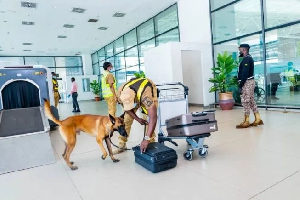An article in the respected pan African magazine, the African Business Magazine (ABM) has indicated that Ghana has an edge over Nigeria in terms of the ease of doing business.
The article also said Ghana “is fast becoming and investment destination of choice in Africa.”The article stated in part” “Ghana, on the other hand, seems to have strongly entrenched policies that enhance industrial growth, while good governance and prudent economic management have made the country the gateway to Africa. Apart from fast becoming an economic hub of the sub-region, Ghana also offers some of the best travel experience in Africa.
In fact, some Nigerians who cannot afford to spend their vacation in Europe or the US have found Ghana a suitable alternative. This brings good money to the Ghanaian economy. President Barack Obama’s visit to Ghana during his maiden trip to the continent this year also speaks volumes for the high regard that the international community has for the West African country.
He chose Ghana over and above Nigeria, the acclaimed giant to Africa and Kenya, his ancestral home, ostensibly because of that country’s stable political system. Nigerian parents are also enrolling their children in Ghanaian universities because of the stimulating learning environment, high-quality programme and stable academic calendar. But Nigerians are not the only ones who are rushing to Ghana.
A top official of the Ghana High Commission in Lagos confirmed that the number of Asian investors, especially from China and Korea, who throng the High Commission daily in search of business information and visas to go to Ghana, are on the increase. The source said: ‘Koreans and Chinese businessmen have been coming to the Ghana High Commission to make enquiries about business in Ghana. The number keeps growing by the day’.”
The writer also gave examples of the problems one is likely to encounter in Nigeria: “In Lagos, the commercial capital of Nigeria, it could take a manufacturer up to 34 days to complete a total of nine procedures before he gets a permit, according to findings by Doing Business in Nigeria. Registering the property would take him 82 days, after 14 procedures; while getting a licence would take 350 days and 18 procedures. Ghana has an edge over Nigeria in terms of the ease of registering property, enforcing contracts and protecting investors, investigations have shown.
Before he gets the business off the ground, the Nigeria industrialist would have to provide his own alternative source of power, due to unreliable electricity supply in the country. Statistics obtained from the Manufacturers Association of Nigeria (MAN), shows that alternative electricity supply typically accounts for about 20% of local manufacturers’ total operational cost.
There is no serious business operator in Nigeria today, no matter how small, that does not own a generator set. ‘I-better-pass-my-neighbor’, which is the smallest size of generator set, sell for about N15,000 ($100). This is the type mostly used by the hairdresser and the business center operator. Even large companies are smarting from the effects of poor electricity supply. For instance, the corporate services executive of MTN Nigeria, Akinwale Goodluck, said the company spends over N500m (about $3m) monthly on the purchase of diesel to run its base stations for 24 hours. This comes to N6bn ($40m) annually.
The Nigerian industrialist must also construct a water borehole and pay various taxes to the federal, state and local governments, not forgetting the notorious ‘area boys’, who will demand their own ‘settlement’ fee. On the other hand, his counterpart in Ghana would simply apply by letter to the Electricity Company of Ghana (ECG), which is solely responsible for the distribution of electricity within the country, for the facility. He would state the location of the company, a site plan of the area, total load required, production schedule, and number of shifts.”
Business News of Wednesday, 11 November 2009
Source: The Daily Dispatch












